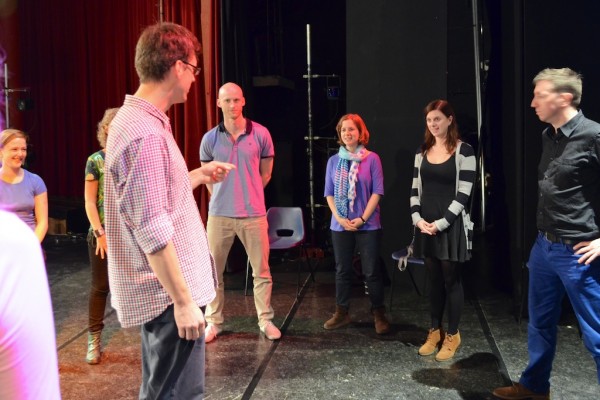
At a recent study day (Child Talk What Works consensus event) I heard Dawn Smith, Healthcare Professionals Advisor, talk about commissioning SLT services. She suggested we tell stories about the impact our services have, with compelling headlines and concise evidence. She talked about the importance of making “effective relationships … across increasingly complex systems” and said that the services thriving under the new commissioning arrangements have “transformational leaders.” It was an interesting talk.
We need to write headlines, and stories with evidence, but we’re not writers. We need to make “effective relationships” with finance people, and non-clinicians but we don’t know what makes them tick. And there wasn’t much on how to be a transformational leader on my SLT degree course.
Dawn’s talk made me reflect on something I’ve been mulling over for a while – to be successful SLTs, in today’s tricky climate, we need to be open to learning from other disciplines, and I don’t mean other allied health professionals. We have excellent clinical skills, we have trouble with the other part of our roles, such as getting sign off to try new models of service delivery, working collaboratively with professionals from other disciplines, and balancing conflicting priorities. I think we can learn from professions like software developers, project managers, writers, religious leaders, entrepreneurs and performers.
Let me give you an example. In September I attended an improvisation workshop. One of the activities involved pretending to pack a picnic with your partner, we did this 3 times. In the first round, whenever you partner suggested an item to add to the picnic basket you had to reject it outright and explain why it was a terrible idea. In the second round when your partner suggested an item you reluctantly agreed to pack it, but explained why it wasn’t such a great idea. And in the third round when you partner suggested an item, you responded “yes, and,” accepting the idea and adding to it with your next contribution. This was an “aha” moment for me. I’ve been in so many meetings that get derailed by the passive aggressive behaviour we experienced in the second round, the “yes, but….” response to a suggestion. The third round felt energising and collaborative, exactly what I want to channel into meetings. Here was a simple, practical tool, I could use immediately in my work. Bingo!
On 20 January 2014 I’m involved in an event called #dareconf mini, the tag line is: Learn to collaborate, communicate and reflect. It’s designed for digital professionals but I think the themes are also relevant for therapists. SLTs are pretty good at reflecting but we can definitely do with some help collaborating and communicating with all these new people in our ecosystems.
The presentations will cover:
- How to communicate with compassion
- Undermining the power of our organisations
- How parts of our jobs make us feel like a fish out of water
- How to balance vulnerability and courage, to make bold choices
- Using facilitation to help people work together in times of change
- How to be a coach and a mentor
As well as leadership and how to leave your comfort zone.
Have you found it difficult to explain what your team does to people who have no shared frame of reference? Have you struggled to negotiate shared objectives with an angry stakeholder? Have you wrestled with how to phrase a project proposal, or request for training in a way that gets you your desired outcome? This day on people skills can help. Each presentation combines a personal story with a practical “how-to” you can apply to your work and you’ll take home a personalised workbook with next steps from each talk.
This full day of practical learning, includes lunch and costs just £165 +VAT if you book before 18th November. Join us. And help spread the word: email this information to friends and colleagues, post about #dareconf Mini on Facebook and Twitter, and tell your boss!
I’m considering how to explore this theme of what SLTs can learn from other professionals. Do you know someone I should talk to? Let me know.
